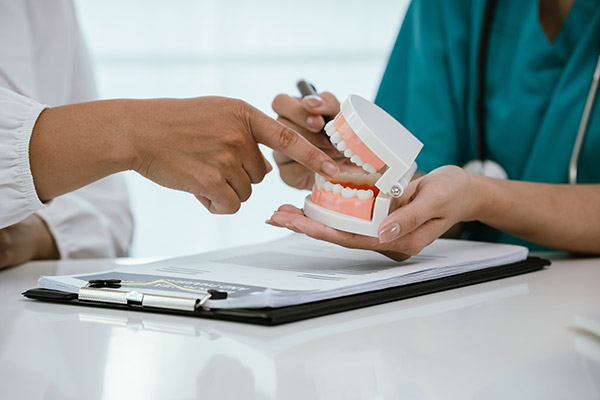What to Do After Damaging a Dental Crown

A damaged dental crown can disrupt daily life and put the underlying tooth at risk for further complications. When a dental crown chips, loosens, or breaks entirely, prompt action can help prevent discomfort, infection, or more extensive dental work. Understanding the proper steps to take ensures the best chance of preserving oral health and restoring function.
Identify the type of damage
Not all dental crown damage requires emergency care, but it is important to determine the severity of the issue. Minor chips or wear may not cause immediate pain, but still require attention to prevent worsening. A completely dislodged crown or one that causes sharp edges, swelling, or sensitivity demands faster intervention.
The type of material the crown comprises also influences the situation. Porcelain, ceramic, and resin dental crowns may be more prone to chipping than metal or zirconia options. Regardless of the material, any visible damage or discomfort signals a need for professional evaluation.
Avoid further damage or discomfort
Until the dentist can assess the dental crown, taking steps to protect the area minimizes the risk of complications. Patients should also avoid chewing on the side of the damaged crown and stick to soft foods. Extremely hot, cold, or sticky items may irritate the exposed tooth or dislodge the crown further.
If a dental crown falls off completely, patients should gently clean and restore it in a safe container. Attempting to reattach it without professional guidance could cause additional damage to the structure or soft tissues. Over-the-counter (OTC) dental cement may offer temporary relief in some situations, but this solution is not a substitute for professional dental care.
Schedule a dental appointment promptly
Even if the dental crown appears stable or causes no pain after using OTC dental cement, it is essential to contact the dental office as soon as possible. Delaying care increases the risk of decay, infection, or structural damage to the underlying tooth. In some cases, bacteria can enter through small cracks or exposed margins and create complications that require more complex treatments.
During the visit, the dentist will examine the dental crown and tooth using visual inspection and possibly diagnostic imaging, like X-rays. Treatment options vary depending on the extent of damage. A small chip may only need polishing or bonding, while a fully compromised crown may require full replacement. If the supporting tooth shows signs of decay or structural weakness, additional procedures such as core buildup or root canal therapy may be recommended.
Prevention for the future
Even after seeing a general dentist to restore or replace a dental crown, patients need to take precautions to ensure the lifespan of the new crown. Consider the following precautions:
- Wear a custom night guard if clenching or bruxism (teeth grinding) is present
- Avoid using the teeth as tools to open packages or biting hard objects
- Maintain proper oral hygiene to prevent gum disease, which can weaken the teeth underneath the crown
- Schedule regular dental checkups to monitor the condition of crowns and surrounding teeth
Restore comfort and function quickly at Alaska Advanced Dentistry
A damaged dental crown does not need to lead to long-term problems if managed promptly and correctly. Have you damaged or lost your crown? Contact our Anchorage office immediately to schedule an appointment.
Request an appointment here: https://alaskaadvanceddentistry.com or call Alaska Advanced Dentistry at (907) 522-3633 for an appointment in our Anchorage office.
Check out what others are saying about our dental services on Yelp: Dental Crowns and Dental Bridges in Anchorage, AK.
Recent Posts
Patients considering dental crowns may have concerns regarding the recovery period following the procedure. Fortunately, the typical recovery period is relatively quick and involves minor inconvenience. Most risks and complications resulting from the procedure are comparable to those of most dental procedures and therefore require similar precautions.The placement of dental crowns involves two stages, each…
Dental crowns are among the most common types of restorative treatments dentists provide. A crown has many uses and benefits. Not only can it restore the aesthetics of your smile, but it relieves pain, protects a damaged tooth, and prevents further problems from occurring to weak teeth. The process of getting a crown can require…
A dental crown is a device used to restore the functions and look of a tooth that has been damaged. If you need a root canal, a fractured tooth, or a big filling, your dentist may also decide to place a dental crown. The new crown covers the part of the tooth visible above the…
Dental crowns are a great way to restore teeth that are in bad shape due to decay, damage or an injury. They provide individuals with a way to renew teeth so that they appear more aesthetically-pleasing, while also improving oral health and function. However, with each dental restoration, comes a few unknown things, which is…


